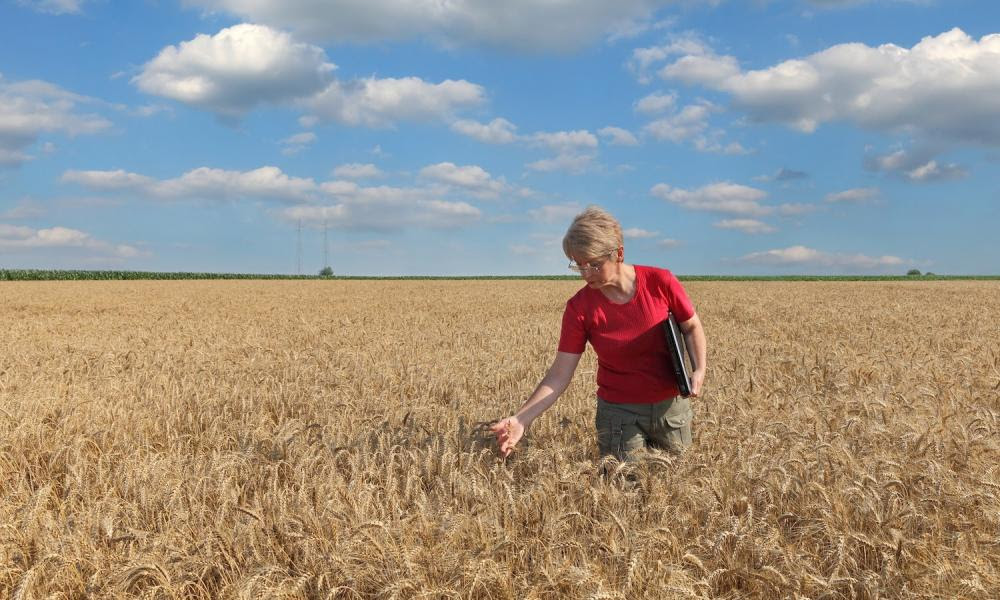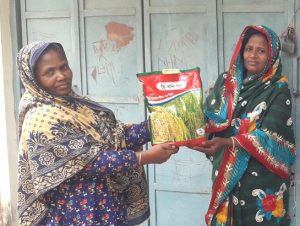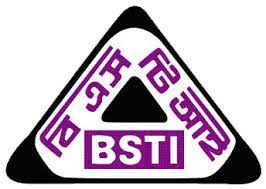From Danielle Nierenberg
Women in the food system and technology sectors face a lot of obstacles. The agriculture sector is rapidly incorporating new technologies and innovations, but the sector often falls flat in incorporating women into AgTech. Women in the sector make on average 61 cents to the dollar in wages compared to their male counterparts, and women-led startups receive just two percent of the total venture capital investment.
Despite these barriers, women are taking the lead in the AgTech sector. In 1966, women held just one percent of agricultural science degrees; today, women hold fifty-two percent of agricultural science degrees. And by vocally pressing for more representation in AgTech, women mentors, leaders, and entrepreneurs are changing the AgTech field for future young women.
Food Tank is highlighting 15 women in AgTech creating a more productive, resilient, and equitable agricultural system while representing the power of women in innovative sectors: Danielle Gould, Food + Tech Connect; Kellee James, Mercaris; Mika Jha, AgShift; Allison Kopf, Artemis; Ali Lange, Google; Renske Lynde, Food System 6; Hillary Miller-Wise, Tulaa; Tinia Pina, ReNuble; Christine Moseley, Full Harvest; Aashna Singh, Mooo Farms; Mikayla Sullivan,
Contributing Author: Thea Walmsley
The convergence of agriculture and technology, or AgTech, is becoming one of the fastest-growing sectors in Silicon Valley, with investments totaling over US$10.1 billion in 2017. However, women-led startups consistently receive a smaller share of these investments. Industry-wide, women-led companies received just two percent of the total venture capital investment in 2017—only US$1.9 billion out of the total US$85 billion invested by venture capitalists that year. The industry’s pay gap tells a similar story: in AgTech specifically, women make on average 61 cents to the dollar compared to their male counterparts (across all labor sectors, women make 81 cents to the dollar). In agriculture more broadly, women make up about half of the world’s farmers, but consistently receive a smaller share of land ownership and farming inputs.
Despite these structural barriers in both sectors, the number of agricultural science degrees held by women has climbed from just one percent in 1966 to fifty-two percent in 2016. This generation of women emerging as leaders in the AgTech sector is pushing for more representation and using their innovative solutions to create a more productive, resilient, and equitable agricultural system.
- Danielle Gould—Founder, Food + Tech Connect
Gould started Food + Tech Connect, a platform designed to connect individuals working to innovate within the food system. It includes industry news, job boards, and creates resources such as comprehensive lists of women working in the food system. Gould also co-founded Alpha Food Labs, which serves as an incubator for startups in the food sector working to build a healthier and more sustainable future. Gould’s work on these different platforms connects those with an interest in changing the food system with the necessary information, contacts, and resources that they need to enact that change. - Kellee James—Founder and CEO, Mercaris
James founded Mercaris to improve the availability of market data for organic and non-GMO produce in the United States. They provide two major services which can be lacking for producers and retailers in this sector; first, they provide current and accurate market information for these commodities and second, they created an online trading platform to connect buyers and sellers to trade those commodities. The organization hopes that by facilitating and supporting the market infrastructure of organic and non-GMO ventures, they will encourage a shift towards a more sustainable agricultural system which is financially viable for both producers and retailers. - Mika Jha—Founder and CEO, AgShift
After growing up on a fourth-generation family mango farm, Jha founded AgShift to address global food waste through more accurate and standardized produce inspection. The system works by employing deep learning models to inspect produce, using USDA quality requirements to make a judgment on the product’s quality, leading to a more efficient and consistent process. The insights from the automated process then lead to reduced losses and less waste. Jha’s goal is to harness technology to digitize the food supply chain to achieve the dual aims of improving quality and reducing food waste to build a more sustainable and efficient system. - Allison Kopf—Co-Founder and CEO, Artemis
Kopf co-founded Artemis (formerly Agrylist) in 2015 to make measuring and predicting yields simpler and more accurate for indoor farmers. The software platform can predict which crops need to be harvested over a 30day period with an accuracy of over 90 percent. This makes predicting yields straightforward and accurate for farmers, which helps to standardize working hours and revenue. The platform also allows for the management of workers, nutrient and pest monitoring and compliance all in one place, hoping to facilitate an increase in farmers’ margins and productivity in a competitive market. - Ali Lange—Senior Policy Analyst, Google
Lange is a founding member of the Refresh Working Group, which explores the role of data-driven technologies and artificial intelligence in agriculture and across the food system. The working group published “Refresh: Food + Tech, from Soil to Supper,” a report that highlights how technology is improving the food system, from autonomous drones and tractors that can collect insights for farmers to the power of food delivery apps and health databases to change the way we understand and consume food. The group is forming a coalition of experts from across the food system to share information and move collectively towards a safer and more sustainable future. - Renske Lynde—Co-Founder and Managing Director, Food System 6
Lynde co-founded non-profit accelerator Food System 6 to support companies whose mission revolves around creating a better food system in increasing their growth and impact. The organization’s focus is on a system-wide perspective, meaning that they aim to help entrepreneurs see how other facets of the food system are interconnected with their work. They provide tools, networks, and mentorship to these companies to help them succeed, as well as serving as a knowledge base for other stakeholders in the system, such as government and potential funders to stay up-to-date and to understand the landscape for innovation in the food sector. - Hillary Miller-Wise—Founder and CEO,
Tulaa
Miller-Wise is the founder ofTulaa , a mobile platform designed to bring market access to smallholder farmers in rural Africa by connecting them to input suppliers, buyers, and other farmers. The goal is to provide a service which is scalable and levels out the playing field for farmers by providing access to information they need to be successful. Part of this comes from providing farmers with agricultural inputs on credit; Tulaa will pay up-front to retailers and allow farmers to repay over a certain number of months, allowing them to access them where they would not otherwise be able to. - Tinia Pina—Founder, ReNuble
After noticing how the surrounding food environment affected children’s ability to perform in SAT prep classes, Pina decided to take action. ReNuble was created to take steps towards a system where closed loop systems produce less waste, chemical additives are absent from the growing process, and food production occurs locally within communities. To achieve this, ReNuble works with hydroponic farms to provide a controllable organic nutrient system which makes it so that soilless farms can access similar benefits as traditional, soil environments. - Christine Moseley—Founder and CEO, Full Harvest
Moseley started Full Harvest to address the issue of wasted imperfect and surplus produce by creating an online marketplace for these products. It allows companies to buy the produce at a discounted rate, while farmers receive additional revenue from selling produce that would otherwise be discarded. The company’s vision is to create a food system where food waste is averted through creating avenues for cosmetically imperfect produce to make it to the market. This creates an opportunity for lower prices for consumers as well, increasing accessibility to healthy food and maximizing valuable resources in the process. - Aashna Singh—Co-Founder, Mooo Farms
Singh co-founded Mooo Farms to address the challenges of rural dairy farmers in countries such as India, providing an app which allows them to manage their farm and access an e-commerce marketplace which connects them to buyers. The organization’s goal is to increase the livelihoods of one million dairy farmers by 2022, using the app to bridge the technology gap that exists in India’s rural farmers. Singh hopes to target youth and women through the app, as these groups tend to be further disadvantaged in the industry—alongside the target number in 2022, Singh is working so that one-third of dairy farmers will be female. - Mikayla Sullivan—Co-Founder, KinoSol
Sullivan’s organization, KinoSol, is tackling post-harvest loss in developing countries through the use of mobile, solar food dehydrators. This allows users to increase income, preserve food for up to six months, and reduce household-level food waste. The system relies on a natural convection system, meaning that it requires no electrical inputs—a common barrier in developing countries. The dehydrator also comes with packaging which protects from heat, light, moisture, oxygen, and pests, so that farmers (and families) can store dehydrated food safer, for longer. - Le Vuong—Founder and CEO, Fishrock Labs
After growing up in Vietnam and witnessing the effects of vitamin A deficiency in children, Vuong wanted to find a food-based solution to the problem; using her knowledge of nutrition, she identified the potential of the native “gac” (redmelon) fruit, rich in vitamin A. Vuong developed a patented extraction process to create an oil which has proven to be highly effective in improving nutritional status in children with vitamin A deficiencies in clinical trials. Vuong hopes to expand production so that the solutioncano tackle the issue of vitamin deficiencies on a broader scale. - Sofia Elizondo—COO and Co-Founder, Bright Seed Bio
Elizondo realized that humans have only explored 0.1 percent of existing plant compounds and saw the potential to harness these using technology to transform human health. Elizondo co-founded Bright Seed Bio, which uses Forager, an artificial intelligence technology, to identify these compounds and analyze their potential role in human health. One of their first discoveries is a plant compound which helps to balance the human metabolism, which can now be isolated and consumed for treatment in a variety of common health concerns. - Amy Wu—Founder and Director, From Farms to Incubators
From Farms to Incubators uses storytelling and digital media to amplify the stories of minority female entrepreneurs in California’s Salinas Valley, a farming region which produces a significant amount of the produce in the U.S. Recognizing that agriculture and technology both remain heavily male-dominated, the project aims to increase the representation and visibility of women in the AgTech sector to highlight the work that is being done. Wu brings extensive journalistic experience to the project, which has secured grants from the International Center for Journalists and the International Women’s MediaFoundation, and has screened at numerous film festivals. - Diane Wu and Poornima Parameswaran—Co-Founders, Trace Genomics
Wu and Parameswaran started Trace Genomics to detect diseases insoil and maximize the productivity of farmers’ land using machine learning. The company asks for soil samples from farmers, which they analyzed for microbial content, then they deliver reports detailing which varieties of crops to grow and the ideal inputs for different stages of the growing season. This can increase yields by providing farmers with valuable insights and decreasing their reliance on external inputs such as fertilizers.
(Danielle Nierenberg is President of Food Tank and an expert on sustainable agriculture and food issues. She has written extensively on gender and population, the spread of factory farming in the developing world and innovations in sustainable agriculture.)





